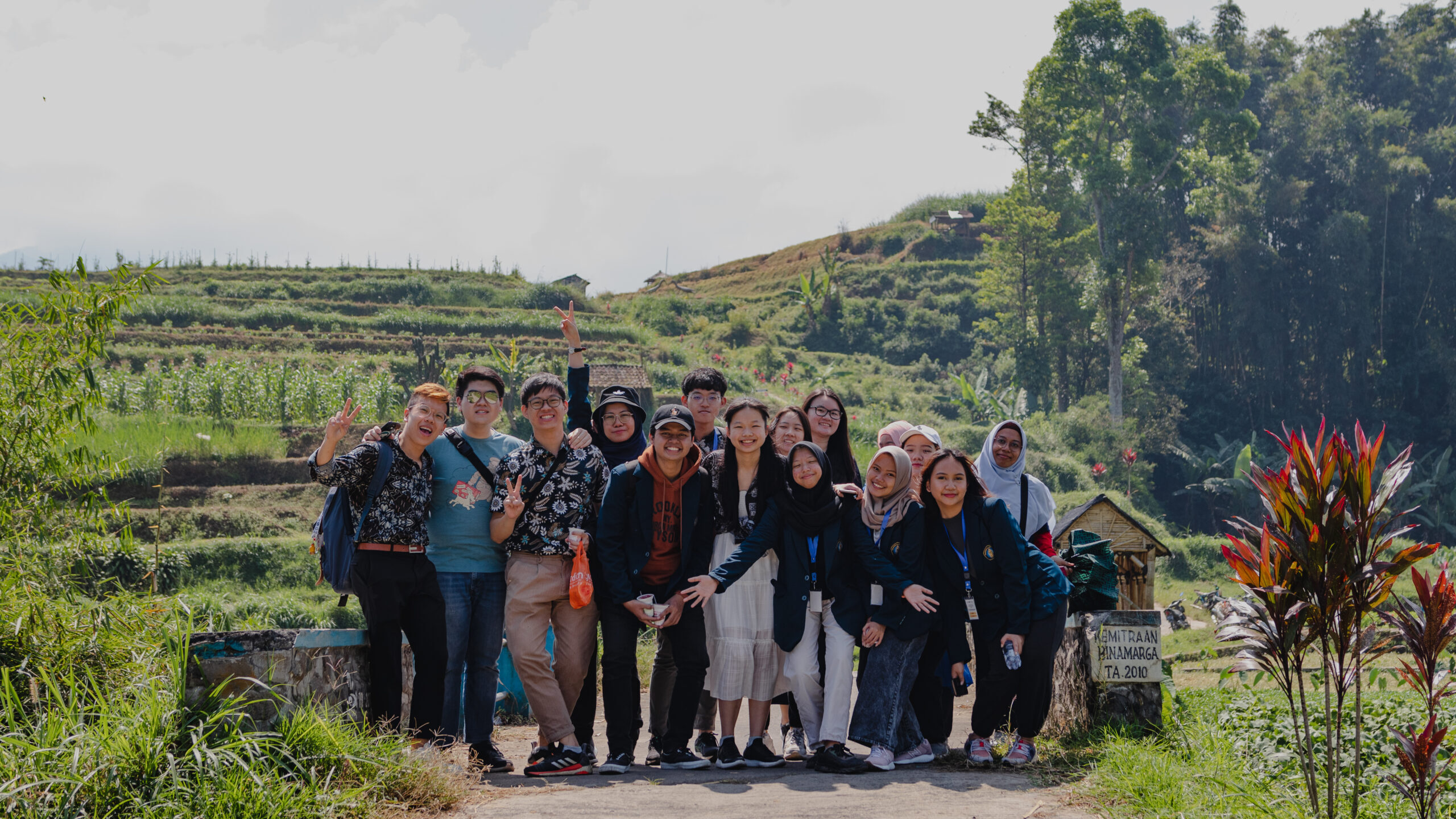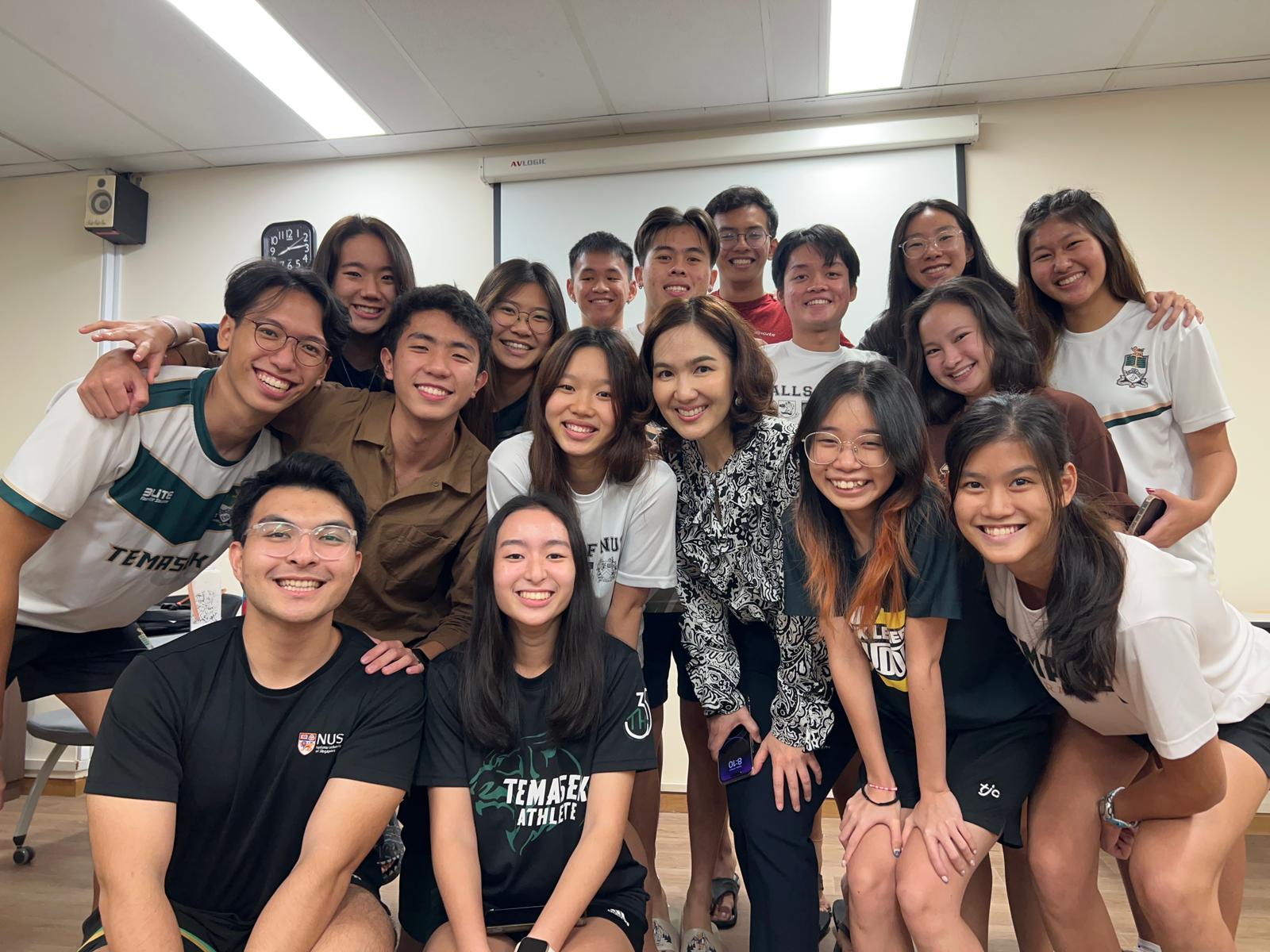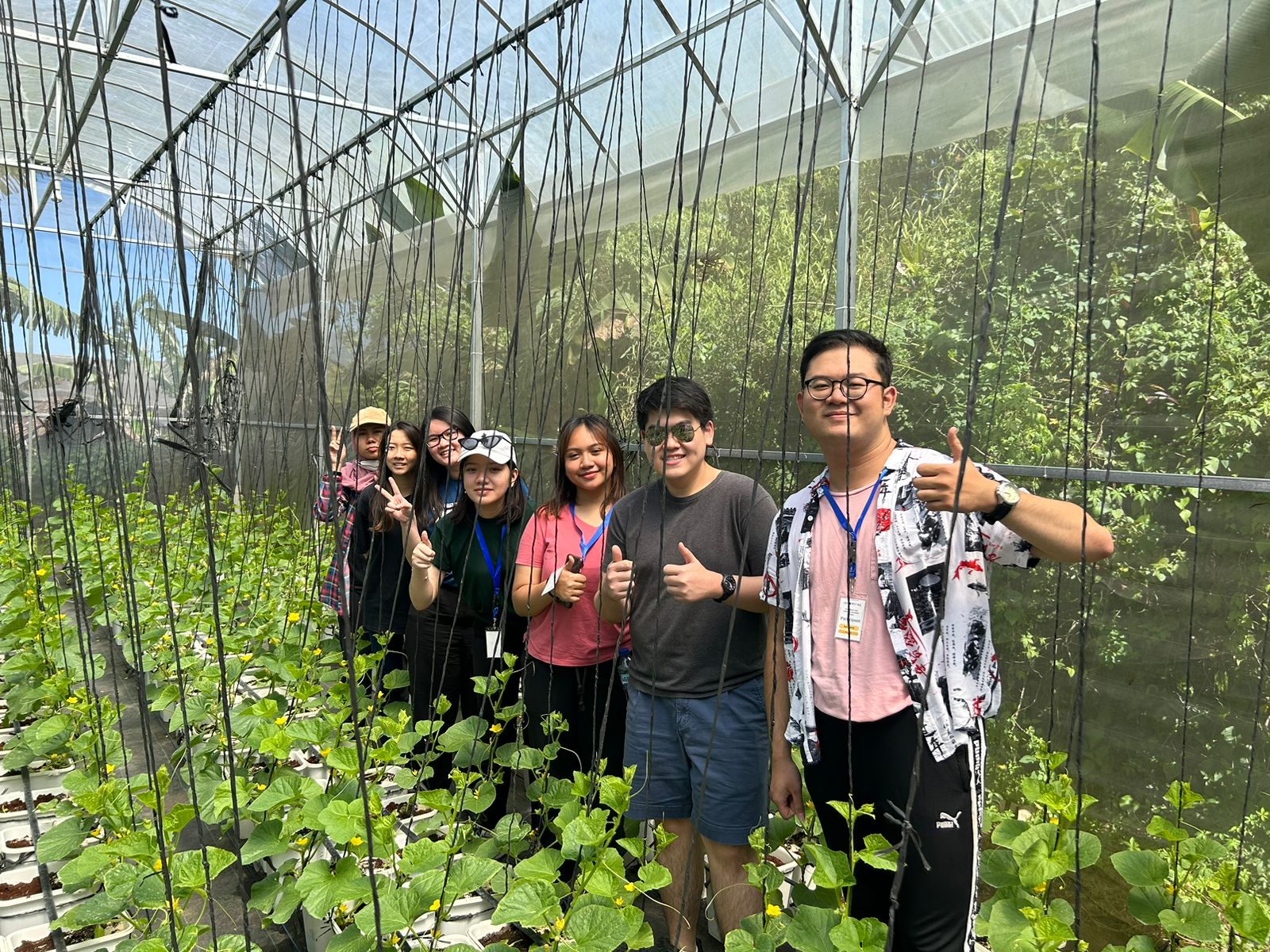Where Education Meets Exploration: NUS Southeast Asia Friendship Initiative
December 4, 2023
 NUS Faculty of Arts and Social Sciences undergraduate Javen Lee (Left – Blue Shirt and Shades) and his hostel mates in Bumiaji visiting to a local SME to get a better understanding of the company’s successful venture into the agri-tourism sphere as part of the NUS Southeast Asia Friendship Initiative.
NUS Faculty of Arts and Social Sciences undergraduate Javen Lee (Left – Blue Shirt and Shades) and his hostel mates in Bumiaji visiting to a local SME to get a better understanding of the company’s successful venture into the agri-tourism sphere as part of the NUS Southeast Asia Friendship Initiative.
In today's rapidly changing world, experiential learning is more critical than ever, equipping students with the necessary skills for their future journeys. The Southeast Asia Friendship Initiative (SFI) at NUS serves as a cornerstone of experiential learning, tailored to our campus residents.
For undergraduates from the 12 Residential Units, the SFI is an exciting credit-bearing programme that offers them the unique opportunity to travel to a Southeast Asian country. During these journeys, they not only explore but also address challenges related to the United Nations 17 Sustainable Development Goals (UN SDGs) and/or Innovation and Enterprise. This transformative experience is meticulously prepared to ensure students are well-equipped, including the development of cultural and language competencies. Here, the NUS Faculty of Arts and Social Sciences (FASS) plays a pivotal role.
Supporting and Enabling Experiential Learning
FASS is a key partner in the SFI, providing students with the foundational knowledge required for a comprehensive study trip. "Many Singaporean students are unfamiliar with key issues connected to our neighbouring countries,” says Associate Professor Vatthana Pholsena, Head of NUS Southeast Asian Studies. “The programme enables our students to make meaningful connections with these issues to develop a deeper appreciation of Southeast Asia’s sociocultural differences and connections.”
The Asian Studies courses offered by FASS for the SFI aim to help students acquire a deep understanding of these countries through academic scholarship, while also fostering cross-cultural sensitivity through cultural immersion. The grounding students receive encompasses two essential components: academic knowledge and language skills.
Academic Knowledge:
In their preparations for the journey, students participate in academic lectures and tutorials designed to provide a critical understanding of the country they will be visiting. "The curriculum is tailored to offer a critical yet sensitive approach to understanding the unique features of various Asian countries," says Associate Professor Maznah Binti Mohamad, Head of NUS Malay Studies. Dedicated faculty members from the Asian Studies departments facilitate collective cross-cultural discussions on topics ranging from diversity to sustainable development. These discussions are customised for each unique destination, be it Cambodia, Thailand, Laos, Indonesia or any other country in the region.
Through these lessons, students not only gain broad-based familiarity with the nation they will be exploring but also an understanding of how key issues are interconnected within a specific national setting.
Language Skills:
The SFI also places an emphasis on language skills and enables students to connect and converse with locals, enhancing their cultural understanding and overall experiential learning. Language experts from the NUS Centre for Language Studies (CLS) play a pivotal role in preparing students for the study trip. They provide introductory language lessons in a Southeast Asian language relevant to the chosen destination.
 Students from Temasek Hall learning the basics of Thai Language from Ms Nujkanit Limcharoen before their trip to Thailand.
Students from Temasek Hall learning the basics of Thai Language from Ms Nujkanit Limcharoen before their trip to Thailand.
These lessons go beyond vocabulary and grammar, incorporating cultural nuances, customs and etiquette, and further enriching the students' ability to engage with the local community.
Beyond the Classroom
Armed with contextual knowledge and language competencies, students then embark on overseas study trips led by Masters and/or Resident Fellows of Halls/Houses. These trips prepare students to make better-informed future decisions about living and working in Southeast Asia, through engagement with important sites and dialogues with representatives from universities, companies, governments, and communities.
Year 2 Economics undergraduate Javen Lee embarked on his learning journey in May 2023 to Malang, Indonesia. He was able to apply what he learned, stating, "The lessons we learned about Indonesia's economy and history provided context to ground ourselves and helped us explain the many observations we made. This course was everything I could ask for, and being able to connect what I saw with the lessons I learned reinforced my belief that learning extends beyond the classroom."
 Javen (Right – Grey Shirt and Shades) and his teammates in the village of Ngroto visiting farms for a better understanding of how the village had transformed itself be self-sufficient
Javen (Right – Grey Shirt and Shades) and his teammates in the village of Ngroto visiting farms for a better understanding of how the village had transformed itself be self-sufficient
Much like Javen, many students benefit greatly from the experiential learning of SFI. The course enhances their academic and language proficiencies, builds character resilience, cultivates empathy towards diverse communities, and fosters a global perspective that will serve them well in their future endeavours. This initiative underscores NUS and FASS's commitment to experiential learning and its power to shape responsible, culturally aware, and globally conscious citizens, ready to make a positive impact on the world.
For more information about the SFI, head over to the NUS SFI site.

